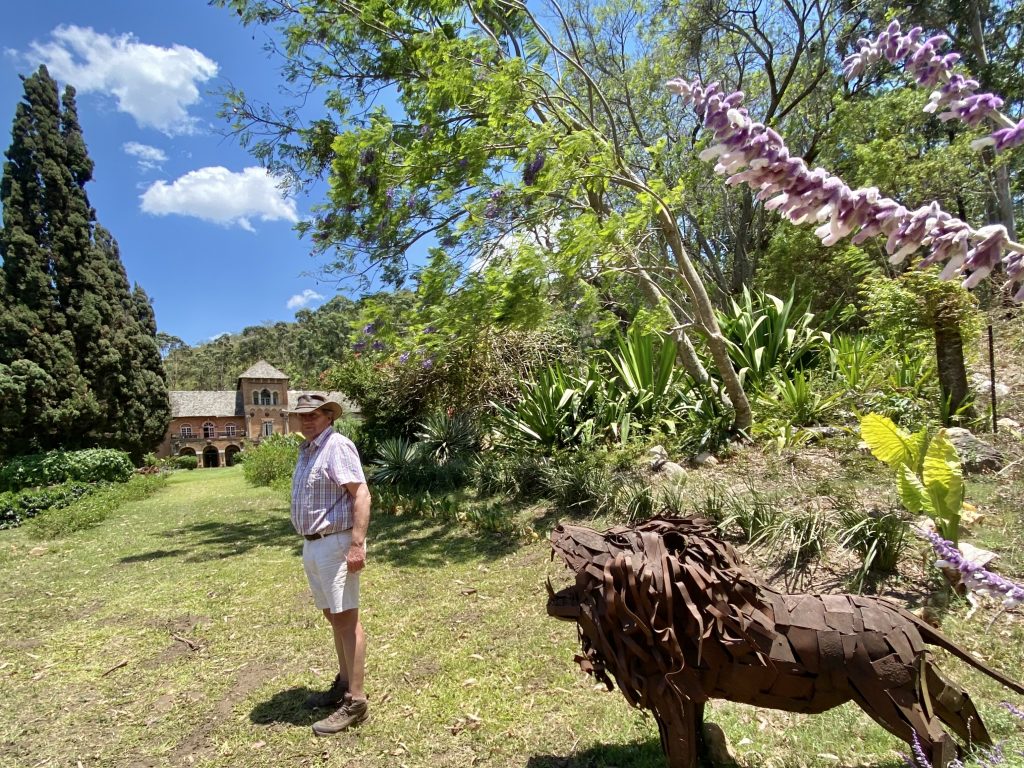
ZAMBIA
In the dark times of Covid my wife and me were about to suffer from claustrophobia. A crazy road trip, to return to the wild, served as our cure. From our home in Nairobi we set off in October 2020, hoping to reach Tanzania, Malawi and Zambia. In case most lodges were still closed, our Landcruiser would have been our castle, its foldable rooftop tent our nightly bed under Africa’s stars. It was our second visit to Zambia. 15 years before we got seriously wet under the mighty Victoria Falls, which we visited on an epic backpacking trip taking us from Kigali in six back-breaking weeks to Cape Town.
In October 2020 we had made it after ten days of driving through African bush to northern Zambia. We were still two off-road day drives away from our cherished destination, wild South Luangwa, Zambia’s best national park. Searching for a decent bed to sleep, after too many nights in a tent, we found, in the heart of Africa, a little piece of England and its owner, David. It proved to be a serendipitous encounter which only travel can offer.
After a fantastic dinner of barbecued springbok and greens, David and us sat in front of a crackling open fire, drinking lots of Gin and Tonic and fantasizing about the magic of wild Africa. David embarked on the great story of his grandfather and his unbelievable “Africa House“ (later to become the title of the famous book): In 1914 Stewart Gore-Brown, a young British colonial officer, was helping to establish the border between Rhodesia and the Belgian Congo when he fell in love. In love with the piece of land where we were sitting now, which looked out over an endless expanse of untouched nature, ending with a deep blue lake. The place was called by local Bemba people Shiwa Ng’andu – the place of royal crocodiles. Charlie’s grandfather instantly purchased 10.000 hectares from the local chief returning after the end of World War I to build a fine manor house here in the bush. Most materials to build the house were produced locally by scores of local workers, other things were transported on foot by porters from the „nearest” railway station, several weeks away. Essentials like a grand piano and fine whiskey were shipped from London. David was offering me now another G&T. The estate grew, including workers’ houses for 2000 employees and schools, while the manor house sat overlooking the lake, complete with manicured lawns and servants clad in white gloves. Unfortunately farming and cattle-ranching did not work so well, so his grandfather constantly needed to be bankrolled by his wealthy aunt back home in Britain.
Stewart Gore-Brown was no ordinary colonist, though, but strongly believed in African independence. He earned the respect of the locals, became a well-known figure in Northern Rhodesia (as Zambia was then called) and became close friends with African-nationalist Kenneth Kaunda, later to become the first president of independent Zambia. Tragedy struck when David’s parents who had taken over the estate from Stewart, were mysteríously murdered in the house. They had made enemies as they were campaigning against illicit ivory poaching and trading in North Luangwa, then one of main means of income of the ANC. I felt shudder and needed another G&T. For years Shiwa Ng’andu, as the house was correspondingly called, had stood empty, until David and his brother Charlie took over, now receiving paying guests to somehow survive despite high maintenance cost.
It was hard to leave Shiwa Ng’andu, its empathic owners and its deep history, but a big challenge was waiting for us (and for our Landcruiser). To reach South Luangwa we needed to descent into the Great African Rift Valley, mastering a rocky descent of 1000m altitude and crossing an unchartered jungle track with several km-wide dry riverbeds. To increase the chance of arrival we had hired a guide, Moses, with a second 4WD (you never know…) and a local, Steven, with a huge axe to clear the track from fallen trees. Steven was golden as it almost seemed that elephants had purposely uprooted trees to block our way. Moses was a bit less helpful, as it came out that he had never been in this jungle before. Consequently our both cars got seriously stuck in the deep sands of a wide dry riverbed. Nobody else was in sight to pull us out, and our camp was still hours away. The sun was already throwing long shadows. In a place like South Luangwa, the land of leopards and lions, there could have been a more comfortable situation. Luckily we had followed the advice of a Nairobi friend to take sandboards – you never know, the old hand had said. These heavenly boards, put again and again under the otherwise freewheeling front tyres, were pulling us out, meter by meter. Without these tools, we would still be stuck in the sand (or eaten by a leopard).Just after we reached a clearing in the forest, an elephant was suddenly attacking our car. Elephants get crazy where poaching is ripe.
After a full day of adventure, arriving at our riverside camp somehow felt like a grand farewell to Covid. The camp was right at the bend of the Luangwa river. Lounging at its edge, a class of crisp South African Sauvignon Blanc at hand, we were watching the parade of giraffes and zebras crossing and braving the water, seemingly ignoring all peril from crocodiles or predators. Fear is not a concept in the wilderness of Africa.
